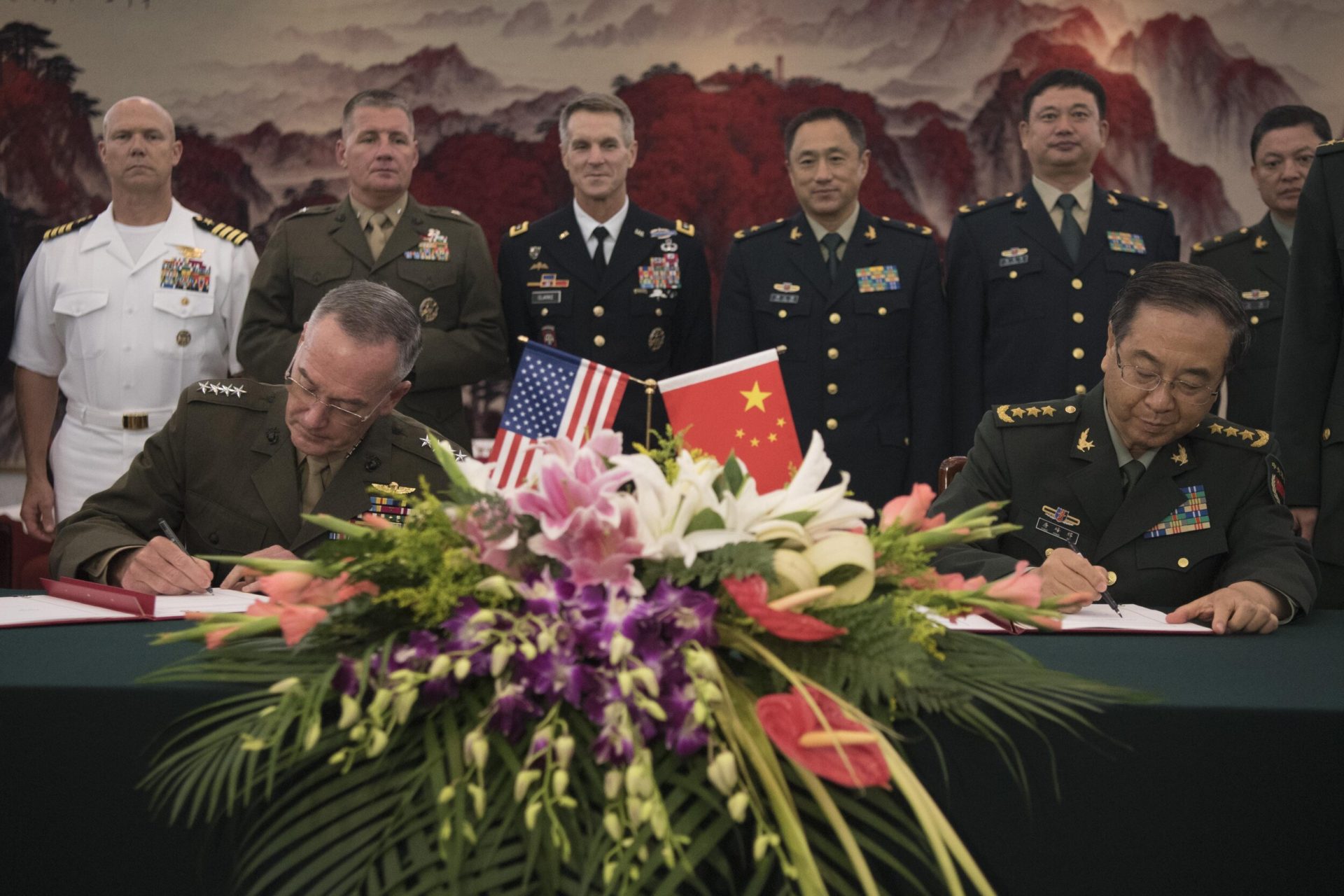
In recent weeks, a lot of media and political scrutiny has been focused on Gen. Mark Milley, the current Chairman of the Joint Chiefs of Staff. This examination was spurred following the publication of legendary journalist Bob Woodward and Robert Costa’s recent book “Peril,” which documented the tumultuous final days of Donald Trump’s presidency. Of all the revelations the book outlined, one that stood out was that Gen. Milley, fearful that Trump might spark a war, secretly phoned his Chinese counterpart, Gen. Li Zuocheng of the People’s Liberation Army, and assured him that that the United States would not start a war.
Since this bombshell revelation became public, the news has been awash with criticism – with some pundits calling for his resignation while others have called him a hero who stopped an unhinged president. In my opinion, not only did Gen. Milley do his duty, but also acted through diplomatic protocols that were established by the Trump administration.
These protocols were put in place on August 15, 2017, when the United States and Chinese military leaders signed an agreement in Beijing at the headquarters of the People’s Liberation Amy. The signatories of that agreement were General Joseph F Dunford Jr., then the Chairman of the Joint Chiefs of Staff, and his Chinese Counterpart General Fang Fenghui. The agreement’s purpose was to “improve communications between their militaries and reduce the changes of miscalculations” according to a news report written by the Department of Defense.
This joint strategic dialogue mechanism grew out of diplomatic and security talks in Washington earlier this year, which first started in a meeting between President Donald J. Trump and Chinese President Xi Jinping at Mar-a-Lago, Florida in April.
“The agreement is intended for crisis mitigation,” the article author Jim Garamone wrote. “U.S. Joint Staff officials said, noting that direct communication at the three-star level in the Pentagon and the Ba Yi will ‘enable us to communicate to reduce the risk of miscalculation’.”
Moreover, here is what General Dunford said for the article:
“To be honest, we have many difficult issues where we will not necessarily have the same perspectives … but from the meeting we had in Washington, D.C., and the meeting we just had I know we share one thing: we share a commitment to work through these difficulties. With the guidance from our presidents and the areas of our cooperation, I know we will make progress…”
This is the diplomatic structure General Milley acted through when he called Gen. Li Zuocheng at the tail end of the Trump administration. He was operating through an agreement signed by his predecessor, and at the direction of President Trump, designed expressly to reduce the risk of military miscalculation.
The major criticism leveled at Gen. Milley is the idea that he acted unilaterally against the wishes of the President, therefore, undermining the very concept of a civilian-controlled military. But this agreement refutes that very concept. Speaking on behalf of Gen. Milley, Col. Dave Butler, the Joint Staff spokesperson, echoed that sentiment by saying that Milley’s communications with the Chinese were part of his routine responsibilities “conveying reassurance in order to maintain strategic stability.”
Not long ago during the Cold War, the lack of communication between the United States and the Soviets plunged our nation into an age of paranoia. Today, there was a real possibility that our intelligence community saw a degree of Chinese anxiety about the stability of the American government, and moreover, hiked up their military activity. Given this prospect, would the procedures to reduce the risk of miscalculation not come into play for the Joint Staff? Wouldn’t it then be appropriate for these four-star generals to communicate? I suggest the answer to both questions is “yes.”
We should expect the Chairman of the Joint Chiefs of Staff to talk to his Chinese counterpart to get a better assessment of the Chinese concerns and to counter any misunderstandings the Chinese might have. Moreover, given that this type of interaction had been formalized by an agreement, it would have heightened Chinese concern had it not happened. Frankly, I believe General Milley had no choice but to talk to the Chinese.
As of right now, the particulars of those conversations between General Milley and his counterpart are clouded in uncertainty. We have the Woodward and Costa revelation, but that reporting has been questioned by reporters with sources within the Pentagon. No doubt, time will reveal the real truth.
But as of right now, Gen. Milley’s choice to talk to the Chinese was well within the scope of his job as were taking actions to reduce the chances of armed conflict. He may have done this in a deficient manner, but he didn’t do it out of some nefarious plot to undermine the White house. To me, it was his duty to talk to the Chinese in a time of misunderstanding, and that’s what our country asked him to do.






